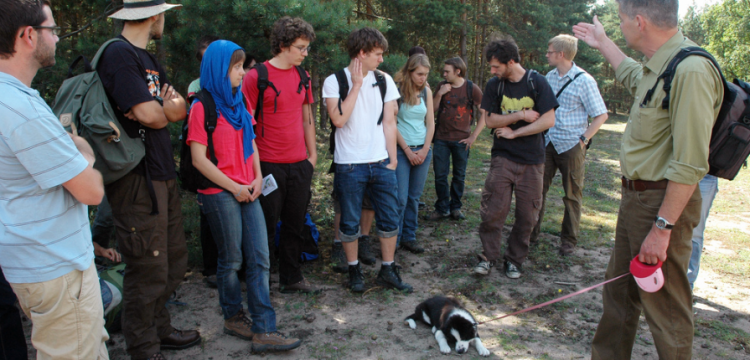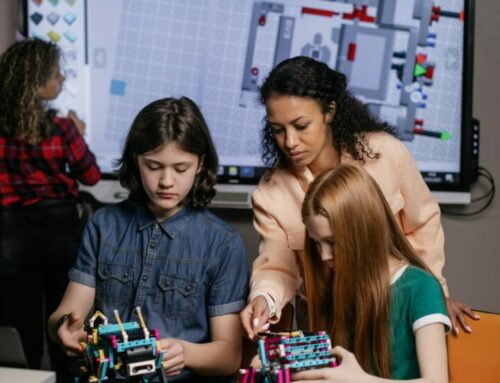The inquiry-based approach to higher ed that could prevent college students from dropping out
Patrick Blessinger
St John’s University, New York City, USA
There may be a more democratic way of learning than declaring a traditional college major.
A growing body of research-based evidence shows that student learning communities (SLCs) can provide an effective path to increased academic achievement as well as student engagement and retention.
Student learning communities are curricular programs designed by faculty and instructional design staff working together with a group of students. These students (known as “the cohort”) take a shared set of courses that are usually connected by a common theme or overarching set of questions or learning outcomes – a key feature of inquiry-based learning.
Any educational institution such as a school or college or university is, by definition, a learning community. However, in a traditional program of study, the courses students take often seem not to have any relationship to each other.
The learning activities and content from one course are usually designed by a faculty member independent of the learning activities and content of courses taught by other faculty, even within the same program. This puts the onus of figuring out how to link the theories and principles from one course to the other almost entirely on the students.
While some highly self-motivated students are able to make these connections, others are less able to do so. At best, students who are not able to make the cross-course connections are not able to maximize their learning experience, and at worse, students may feel frustrated and underperform academically or even drop out of school.
Connecting different theories and principles across courses is very important because that is where higher order learning occurs and it is the heart of academic inquiry. It is in the analysis, synthesis, and evaluation of different bodies of knowledge that higher learning takes place.
It is for these reasons that student learning communities have started to become more popular on college campuses.
One of the chief goals of a student learning community is to help integrate education across courses; for instance, by having students address the big questions or grand themes that extend beyond a single course. These programs require students to take two or more linked courses as a cohort and then work closely with their cohort peers and with their professors.
These courses may be within the same discipline or from different disciplines.
Arts or humanities courses may be linked with the social sciences or STEM disciplines.
Student learning communities at Loyola Marymount University and Ohio University are among those showing how institutions are helping students explore different cultures, genders, and worldviews, thus improving their intercultural competencies and understanding of human rights and equality issues.
Other student learning communities may use service learning or leadership or undergraduate research as vehicles to cultivate deeper learning experiences. They may integrate intercultural studies with service learning in the community or with study abroad learning opportunities.
This type of field-based experiential learning allows students to engage in more authentic and meaningful inquiry by applying what they are learning in the classroom to real-world situations.
Rather than waiting until after they graduate to work on these types of problems, students start working on them from the start of their college experience.
When student learning communities are designed properly, learning is inherently more authentic, experiential, integrative, self-regulating, and inquiry-based.
Student learning communities represent a shift away from isolated, disconnected learning to more social, connected learning.
John Dewey defined a democracy as an associated way of living, and in the spirit of Dewey, these communities represent a more participatory and inquiry-based way to cultivate deeper and higher-order levels of learning.
Patrick Blessinger is the founder and executive director of the International Higher Education Teaching and Learning Association and an adjunct associate professor of education at St John’s University in New York City. He is co-editor with John M. Carfora of the Inquiry-Based Learning book series. The ideas in this article are based on that series.
Suggested Citation:
Blessinger, P. (2016). The inquiry-based approach to higher ed that could prevent college students from dropping out, The Hechinger Report, https://hechingerreport.org/the-inquiry-based-approach-to-higher-ed-that-could-prevent-college-students-from-dropping-out/
Or
Blessinger, P. (2016). The inquiry-based approach to higher ed that could prevent college students from dropping out, Higher Education Tomorrow, Volume 5, Article 10, https://www.patrickblessinger.com/the-inquiry-based-approach-to-higher-ed-that-could-prevent-college-students-from-dropping-out
Copyright © [2018] Patrick Blessinger
Disclaimer
Opinions expressed in this article are those of the author, and as such do not necessarily represent the position(s) of other professionals or any institution.




